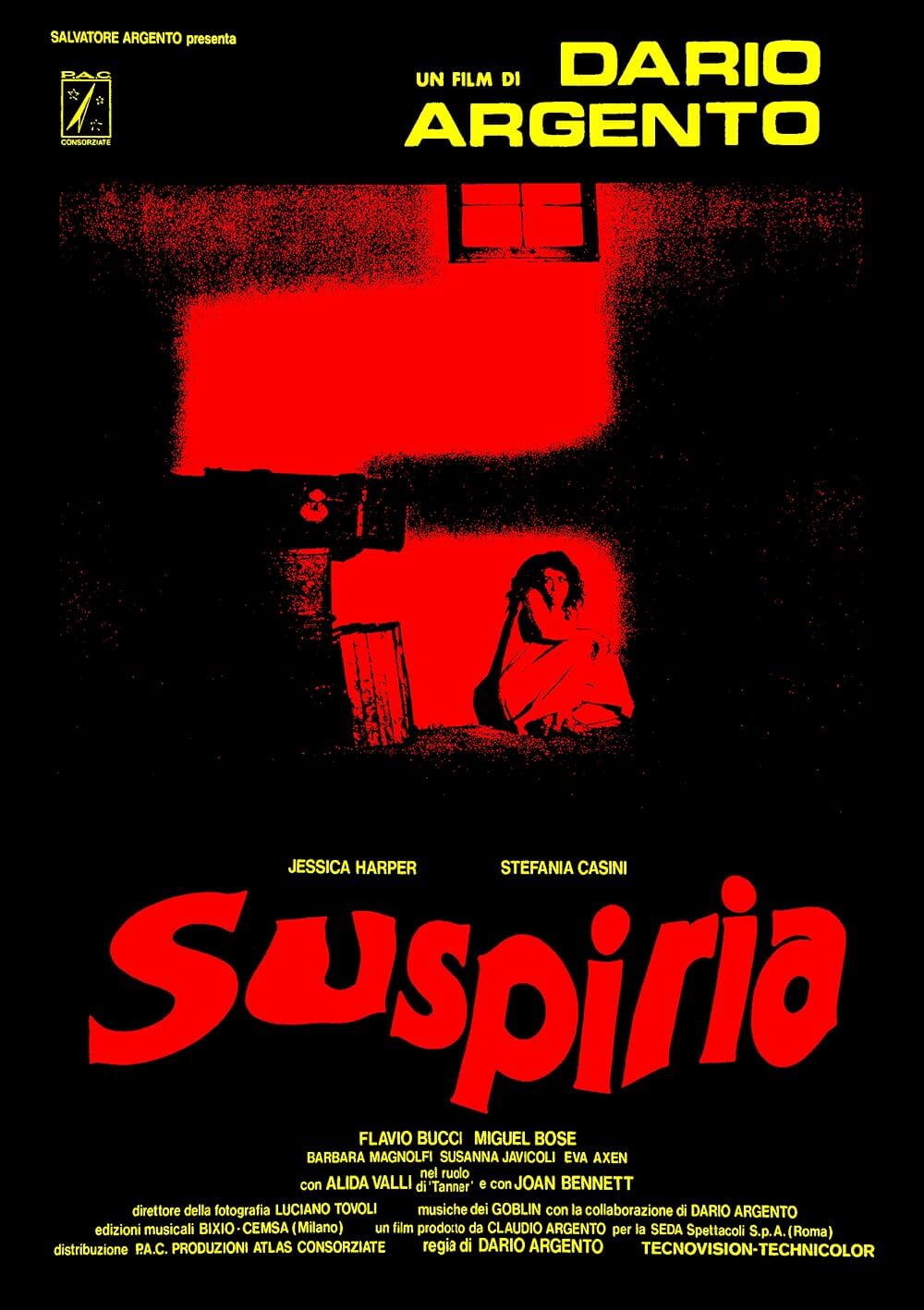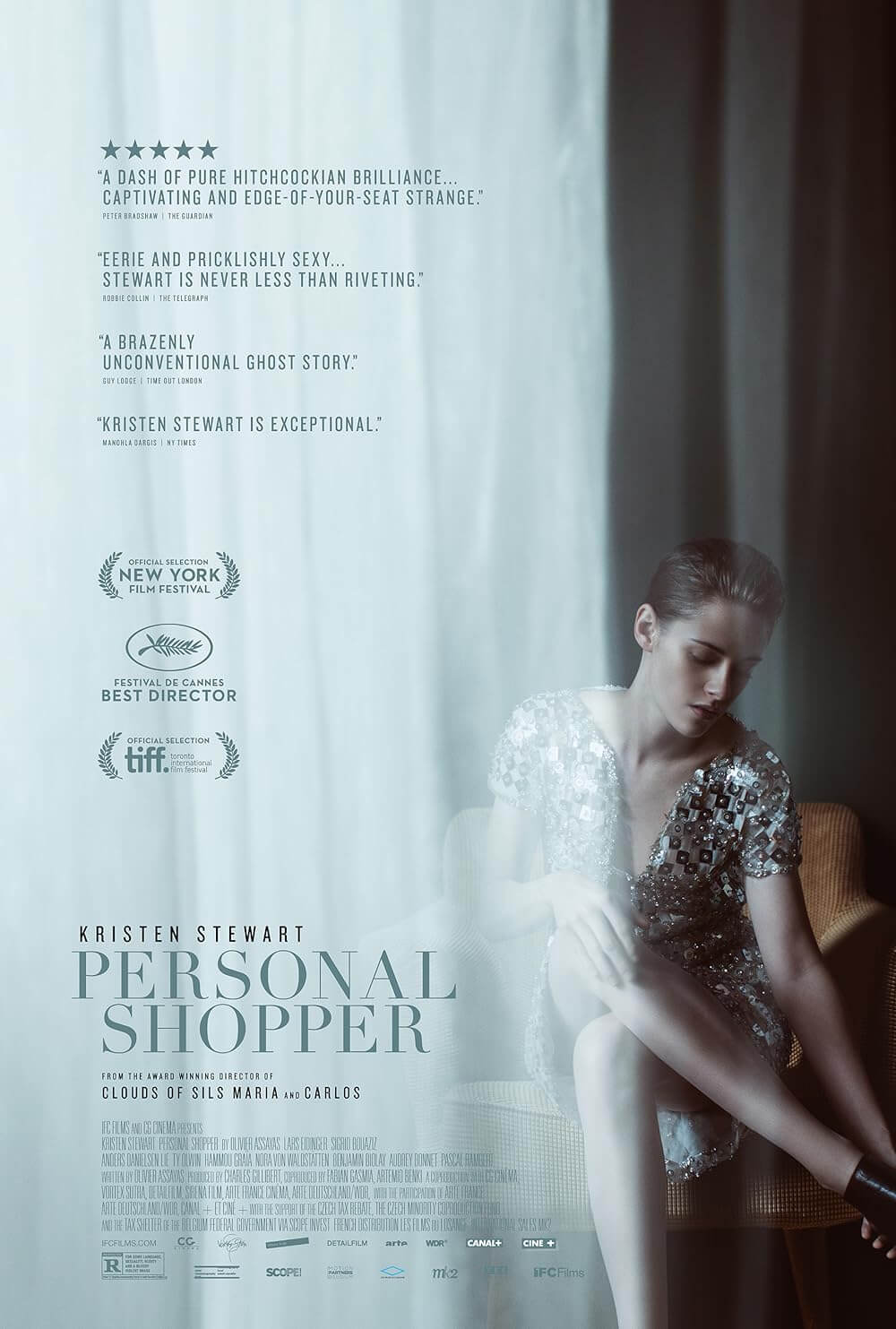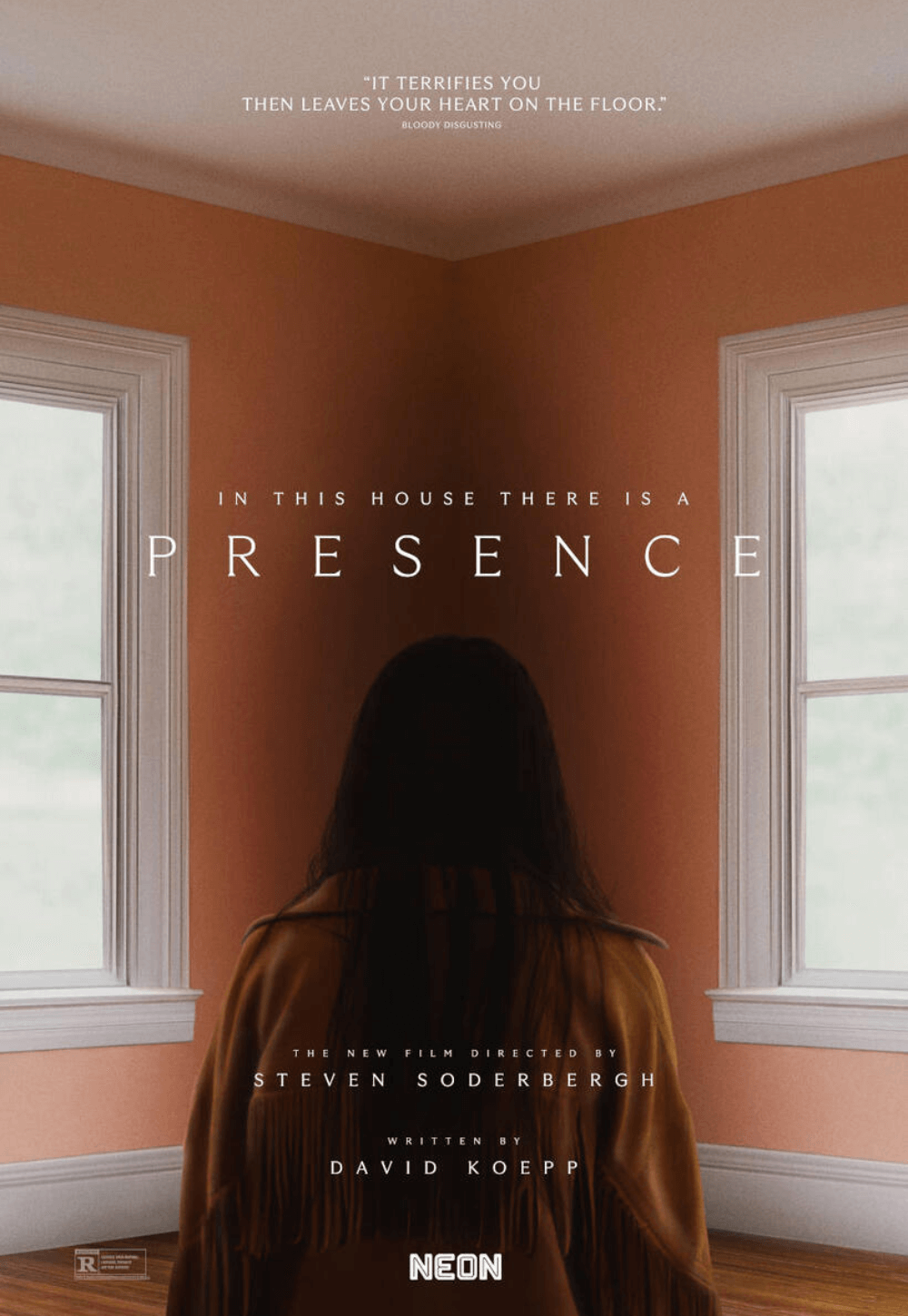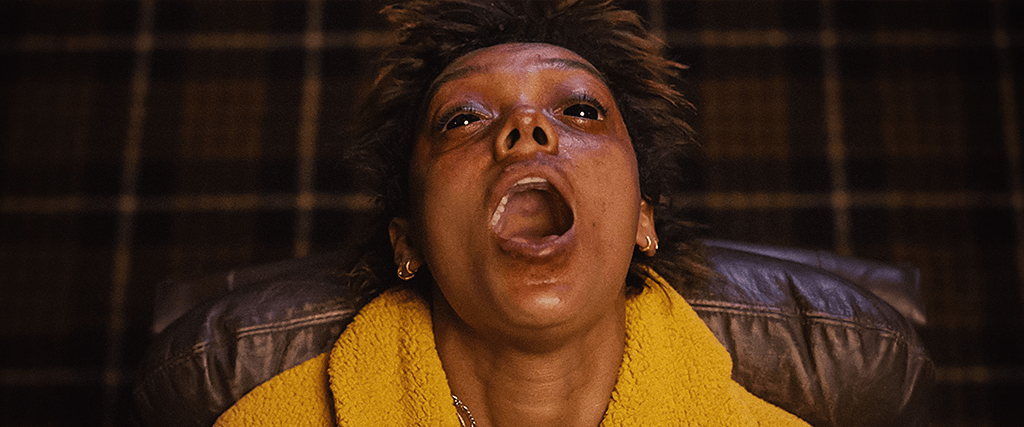
Talk to Me
By Brian Eggert |
Talk to Me opens with a sequence where a crowd of partygoers responds to a violent altercation by holding up their phones to record the incident. The phones go down only when a knife enters the mix, and the onlookers scatter. The film isn’t about passive recording culture or social media, per se. But there’s a slight commentary on the disturbing desire to “go viral” with stupid, sensational content, from the Tide-pod challenge to the sunburn-tattoo challenge. Here, a group of teens records themselves playing a party game with what’s supposed to be the severed hand of a dead medium in a ceramic cast. Grip the hand and say, “Talk to me,” and the player will see ghosts in the room. Add, “I let you in,” and one of the dead will possess them, turning their eyes black, contorting their body, and delivering quite a performance until their friends break the connection. As long as the player doesn’t go over for 90 seconds, it’s a wild substitute for the usual sex, drugs, and alcohol of teen parties, and it makes for a helluva TikTok video. That they’re not terrified of, say, proof of the afterlife or possession, is staggering. Then again, a few years ago, they were probably eating laundry detergent as entertainment.
Australian twin brothers Danny and Michael Philippous know a thing or two about going viral with insane videos. After earning a name for themselves with their hilarious and often disturbing YouTube channel, RackaRacka, the Philippous brothers deliver a stunning feature debut with Talk to Me. They take a relatively straightforward concept, credited to Daley Pearson, which is reminiscent of about a dozen Blumhouse features, and they prove that clichés, no matter how overdone, can still work. After all, how many horror movies have you seen about people tampering with the afterlife only to find themselves haunted by malicious specters trapped in limbo? For every five installments in The Conjuring or Insidious franchises that replicate a commercially proven formula without trying anything new, there’s a rare film like Talk to Me that doesn’t feel like it’s breaking the mold, but it feels fresh and vital—like it’s not so much trying to copy a bankable template as tell a good story in a stylish way. By dialing up the intensity and giving the audience characters who feel real instead of tired tropes, the directors deliver a spine-tingling scenario armed with shocks that horror fans won’t soon forget.
The story follows the 17-year-old Mia (Sophie Wilde), who practically lives with her surrogate family, including her best friend Jade (Alexandra Jensen), the innocent 14-year-old brother Riley (Joe Bird), and their no-nonsense single mother Sue (Miranda Otto). Although Sue worries that a late-night party might lead to underage substance abuse or a teen pregnancy—which isn’t likely, given Jade’s reserved Christian boyfriend Daniel (Otis Dhanji), Mia’s ex—the last thing she would expect is that the teens will be conjuring spirits. At the get-together, the crass Hayley (Zoe Terakes) and Joss (Chris Alosio) tempt the others with the ceramic hand, whose uncertain origins don’t prevent Mia from volunteering to be tied down and possessed as everyone watches, phones recording. The result looks like a Sam Raimi-brand Deadite, except instead of prompting terrified reactions, the teen spectators giggle and can’t wait to be next. Admittedly, the director-brothers land some hardy laughs when the chaste Daniel becomes a puppet to a horny old toe-sucking woman ghost, but they’re not without a layer of unsettling horror too. Only when a possessed Mia looks at Riley and declares, “He’ll split ya!” in a chilling tone does the room quiet.
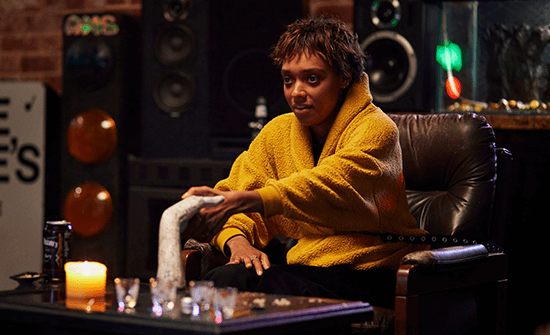 Although I’ve remarked before about how every other horror movie today is about how people process grief and trauma, Talk to Me demonstrates that, no matter how overplayed, in the right hands, the theme can still drive a narrative without feeling overly familiar. Early on, we learn Mia’s mother died two years earlier by committing suicide. Since then, a gulf has opened between Mia and her father, Max (Marcus Johnson), leaving questions about why her mother took her own life and her father’s honesty about the situation. On the surface, this thread might seem commonplace, except Wilde sells every moment of her mourning, and the dialogue in the Philippous’ script never resorts to trite dramatics or schmaltz. Mia’s search for answers draws her to the hand for longer than the recommended limit. And why only 90 seconds, anyway? Hayley’s unsettling response is because, after that, “They’ll wanna stay.” Still, Mia’s lingering issues with her mother remain secondary to an incident that leaves one of the main characters trapped in a possessed state, unable to escape.
Although I’ve remarked before about how every other horror movie today is about how people process grief and trauma, Talk to Me demonstrates that, no matter how overplayed, in the right hands, the theme can still drive a narrative without feeling overly familiar. Early on, we learn Mia’s mother died two years earlier by committing suicide. Since then, a gulf has opened between Mia and her father, Max (Marcus Johnson), leaving questions about why her mother took her own life and her father’s honesty about the situation. On the surface, this thread might seem commonplace, except Wilde sells every moment of her mourning, and the dialogue in the Philippous’ script never resorts to trite dramatics or schmaltz. Mia’s search for answers draws her to the hand for longer than the recommended limit. And why only 90 seconds, anyway? Hayley’s unsettling response is because, after that, “They’ll wanna stay.” Still, Mia’s lingering issues with her mother remain secondary to an incident that leaves one of the main characters trapped in a possessed state, unable to escape.
Apart from a bravado, euphoric montage where the main group takes turns subjecting themselves to the hand’s macabre delights, the filmmakers set aside the manic energy of their viral videos (which have names like “Ronald McDonald Playground Slaughter!”). Yet, Talk to Me also resists falling into the dour “elevated horror” subgenre, though another filmmaker might have gone that route. The Philippous brothers find a balance between deploying genuine emotions and having fun scaring the bejesus out of us. Their attention to sensory detail creeps inside our minds and bodies. Emma Bortignon’s thumping sound design makes the viewer feel present in every room, catching the reverberating noise of a sudden crack or jolt on the soundtrack, just as the deafening ambient noise of an empty house crawls under our skin. Cornel Wilczek’s heavy modern score propels the momentum, while the visual effects team produces a slew of creepers that look inspired by the undead granny in The Shining (1980). Brief glimpses of the netherworld inhabited by these unsettled spirits look like scenes out of Society (1989) or the hell dimension in Event Horizon (1997)—unfathomably terrifying and grotesque, implanting an unshakable sense of dread and danger.
Talk to Me is one of the most satisfying supernatural horror films in recent memory. If some details about Mia’s mother and who’s telling the truth about her suicide become muddy in the last third, the film finds a pitch-perfect ending that’s bound to leave goosebumps. Indeed, the earlier Raimi reference was apt, since the Philippous brothers capture the equal measures of character integrity and funhouse energy of his spook-a-blast masterwork Drag Me to Hell (2009), leaving the viewer feeling like they’ve been put through a gauntlet of comic jabs and gasp-inducing scares. The excellent cast sells every moment, and it helps that the duo got their start in online videos that often blend horror and physical humor. Whereas the mostly humorless offshoots of Raimi’s Evil Dead in 2013 and 2023 have failed to tap into the director’s interest in slapstick, it feels like the Philippous brothers would be primed for the task, if asked. After getting acquired by A24 out of the Sundance Film Festival this year, Talk to Me is certain to connect with mainstream audiences and horror buffs alike, launching the cinematic careers of two very talented directors.
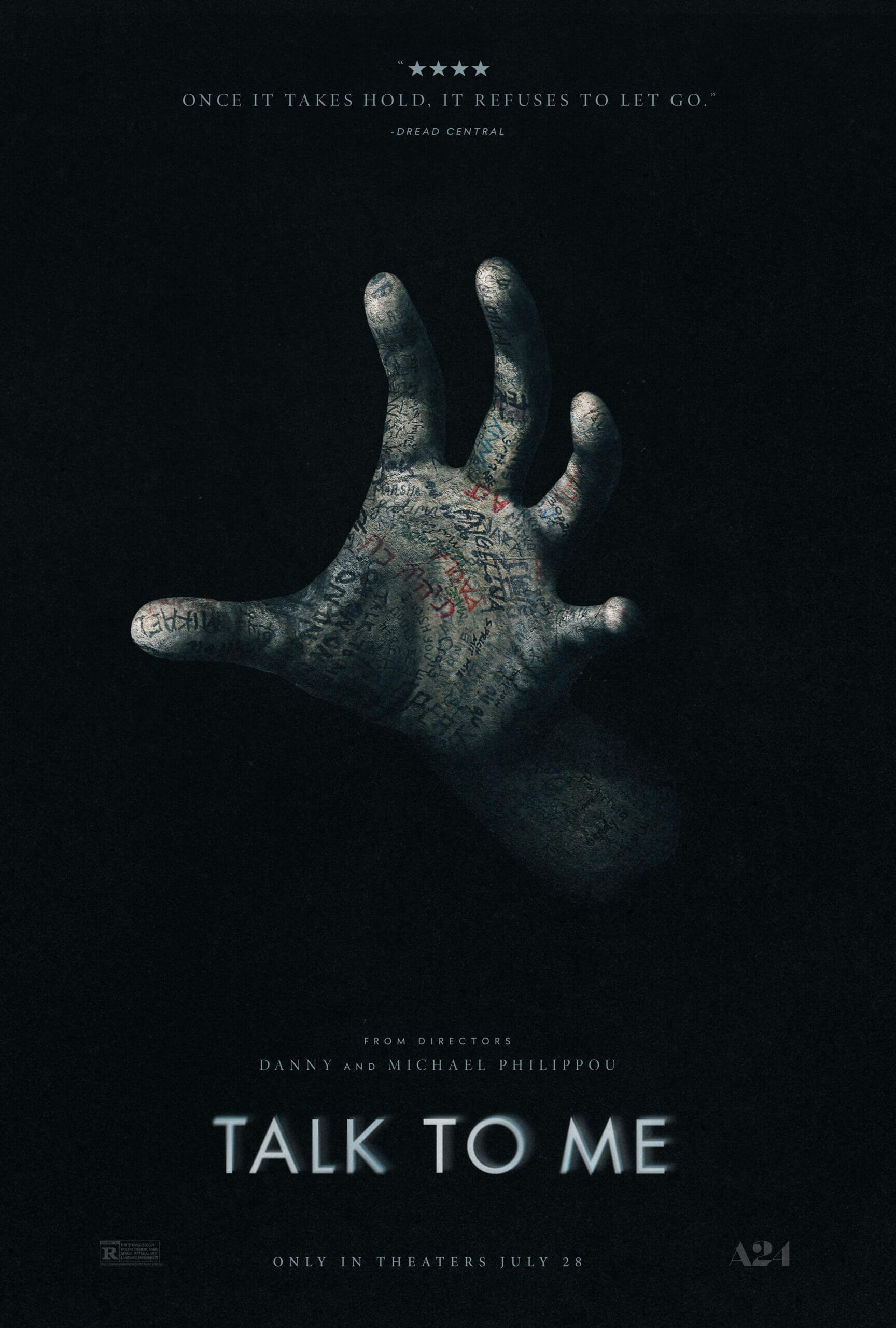
Thank You for Supporting Independent Film Criticism
If the work on DFR has added something meaningful to your love of movies, please consider supporting it.
Here are a few ways to show your support: make a one-time donation, join DFR’s Patreon for access to exclusive writing, or show your support in other ways.
Your contribution helps keep this site running independently. However you choose to support the site, please know that it’s appreciated.
Thank you for reading, and for making this work possible.
Brian Eggert | Critic, Founder
Deep Focus Review


